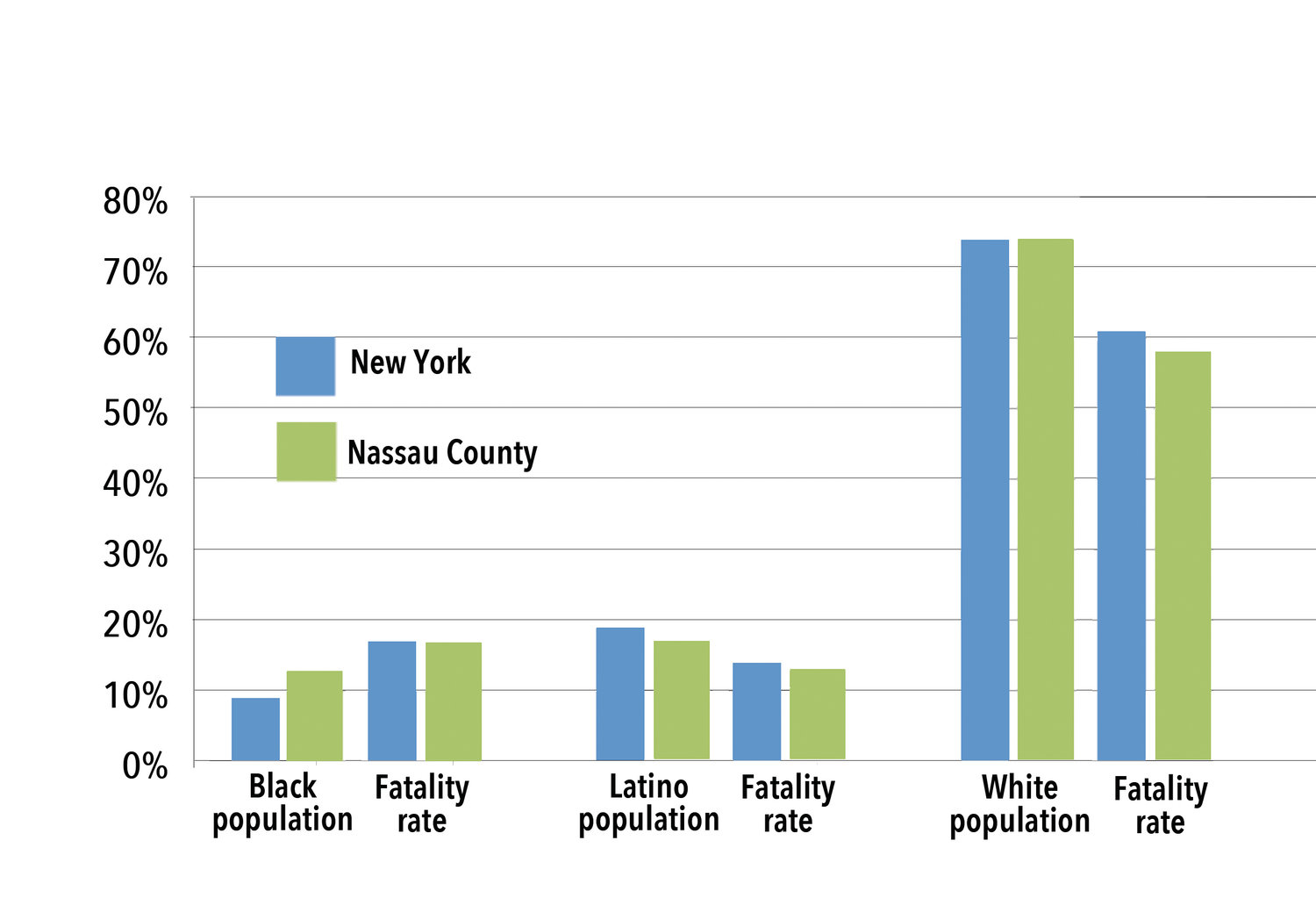Officials ask governor for more rapid testing sites in Elmont, Valley Stream and Inwood
As more and more data is being released showing that the novel coronavirus affects minority communities at higher rates, Nassau County Legislator Carrié Solages and State Assemblywoman Michaelle Solages are urging Gov. Andrew Cuomo to set up more rapid testing facilities in communities with large minority populations, such as Elmont, Valley Stream and Inwood.
“If we’re going to outsmart this disease, we have to see where it’s running rampant,” Carrié Solages, a Democrat from Valley Stream, said.
Studies across the country, he noted, have shown that the virus is killing a higher percentage of African-Americans than white people, and data from New York state — the epicenter of the pandemic — shows that African-Americans had 17 percent of coronavirus cases outside New York City as of April 9, despite accounting for only about 9 percent of the state’s population.
In Nassau County, the data from the State Department of Health shows, blacks, who make up 13 percent of the population, had 17 percent of the county’s fatalities.
Cuomo announced on April 9 that he would open five new testing facilities in minority communities in New York City, including Brownsville and Flatbush, Brooklyn; South Ozone Park, Queens; the South Bronx; and Jamaica, Queens.
“We are going to increase testing and open new testing sites to collect more data in African-American and Latino communities,” Cuomo said, “so we can better understand why this virus kills and has higher fatality rates in certain communities, and what we can do to address it.”
Both Carrié and Michaelle Solages said that more needed to be done in Nassau County as well. In an April 8 letter to Cuomo and Commissioner of Health Howard Zucker, Carrié wrote that he had heard from constituents in the county’s 3rd Legislative District “that there is a frustrating backlog in testing, leaving many unable to receive the test in a timely fashion, and therefore forcing them to remain uncertain about their health status.”
Making it worse, he said, African-Americans are more likely to have underlying health conditions, including heart disease, diabetes, hypertension and some cancers that can make Covid-19 infections more severe, and lower-income areas — which tend to have larger non-white populations — have less access to health care services.
Carrié and Michaelle both suggested that increasing the availability of rapid tests in minority communities would help. Now, Michaelle explained, people in areas such as Elmont, Inwood and Valley Stream may have to wait “days, if not weeks” to get the results of their coronavirus tests. But, she said, if the state government were to supply federally qualified health centers — like the LIFQHC in Elmont — with the rapid tests, people in minority areas could get their results in a matter of minutes.
“This will allow us to slow the spread of Covid-19 for all individuals, regardless of economic status, race, religion and ethnicity,” Michaelle said in a statement, telling the Herald, “Let’s get ahead of the game, and pour resources into these communities.”
As of last week, Long Island Federally Qualified Health Centers, which operates in communities across the Island, addressing the health care needs of vulnerable and under-served populations, had tested about 400 people for Covid-19, according to David Nemiroff, the organization’s president and CEO. About 65 percent of those tests, he said, have come back positive.
But the facilities have been running low on testing kits, Nemiroff noted, and do not have access to the rapid tests, which are mainly being sent to hospitals. If LIFQH were to get them, however, Nemiroff said, “We would do it in a heartbeat.”






